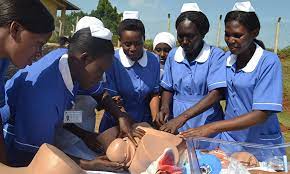“The acute shortage of midwives is exacting a terrible global toll in the form of preventable deaths. An analysis conducted for this report, published in The Lancet last December, showed that fully resourcing midwife-delivered care by 2035 could avert 67 percent of maternal deaths, 64 percent of newborn deaths, and 65 percent of stillbirths. It could save an estimated 4.3 million lives per year.
“Despite alarms raised in the last State of the World’s Midwifery report in 2014, which also provided a roadmap on how to remedy this deficit, progress over the past eight years has been too slow. The analysis in this year’s report shows that, at current rates of progress, the situation will have improved only slightly by 2030,” it said.
The report noted that gender inequality is an unacknowledged driver in this massive shortage as the continued under-resourcing of the midwifery workforce is a symptom of health systems not prioritizing the sexual and reproductive health needs of women and girls, and not recognizing the role of midwives – most of whom are women – to meet these needs.
Women account for 93 percent of midwives and 89 percent of nurses, the report added.
“Midwives do not just attend births. They also provide antenatal and postnatal care and a range of sexual and reproductive health services, including family planning, detecting and treating sexually transmitted infections, and sexual and reproductive health services for adolescents, all while ensuring respectful care and upholding women’s rights. As the numbers of midwives increase, and they are able to provide care in an enabling environment, women’s and newborns’ health improves as a whole, benefitting all of society.
“For midwives to achieve their life-saving and life-changing potential, greater investment is needed in their education and training, midwife-led service delivery, and midwifery leadership. Governments must prioritize funding and support for midwifery and take concrete steps to include midwives in determining health policies,” it said.
Speaking on the report, WHO Director-General, Dr. Tedros Adhanom Ghebreyesus said “Midwives play a vital role in reducing the risks of childbirth for women all over the world, but many have themselves been exposed to risk during the COVID-19 pandemic.
“We must learn the lessons the pandemic is teaching us, by implementing policies and making investments that deliver better support and protection for midwives and other health workers. This report provides the data and evidence to support WHO’s longstanding call to strengthen the midwifery workforce, which will deliver a triple dividend in contributing to better health, gender equality, and inclusive economic growth.”
source: Punch

 The 2021 State of World’s Midwifery report by the United Nations Population Fund, the World Health Organisation, the International Confederation of Midwives, and partners shows that the world is currently facing a shortage of 900,000 midwives. The figure, according to the UN agencies, represents a third of the required global midwifery workforce.
The 2021 State of World’s Midwifery report by the United Nations Population Fund, the World Health Organisation, the International Confederation of Midwives, and partners shows that the world is currently facing a shortage of 900,000 midwives. The figure, according to the UN agencies, represents a third of the required global midwifery workforce.





